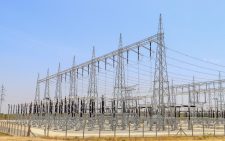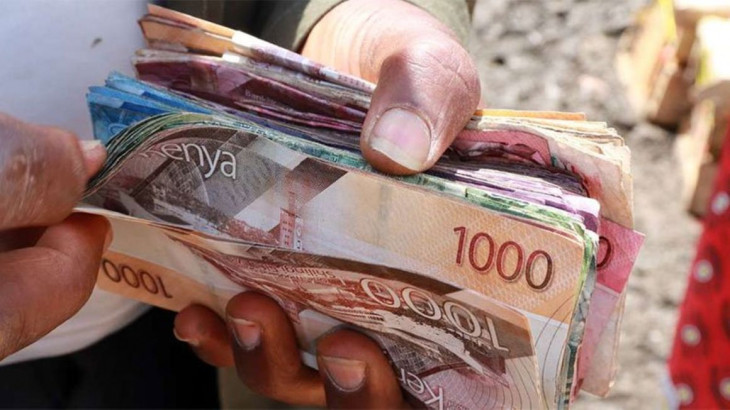How nuclear family failed the extended family

Back in the days, it took a village to raise a child. Nowadays, it takes only mum and dad and increasingly just one parent. We’ve moved from big, interconnected units, which helped protect the most vulnerable, to smaller, detached ones.
Jasmine Atieno @sparkleMine
Decades ago, extended families culturally and naturally were seen as the ideal family set up.
All members supported the overall economic well-being of the family, as well as ensured proper socialisation of children.
They actively participated in bringing up children and ensuring that proper moral values upheld by society were taught.
However, with the rise of modernism and industrialisation, changes in the family structure was noted.
It led to the emergence of the nuclear family. In Africa whereas we have many collectivistic cultures that uphold the extended families, the influence of colonisation and urbanisation brought about the rise of nuclear families.
People moved into urban areas for green pastures and a civilised life. This affected socialisation of children.
Individuals back in the villages were being brought up to move to modern industrialised towns to work, as opposed to support their parents in their home.
And now in the 21st century, the nuclear family’s existence is being viewed as brittle. Even fragile.
And they are easily disintegrating into single parent families, co-parenting, living together apart, among others.
Asha Mmbali’s parents separated when she was young, she barely has memories of how old she was. She saw him once in 2005, then again in 2018.
He was in contact with her mother though. Asha only got to know relatives from her mother’s side, but this connection also ended with the passing on of her grandmother who was the main glue that helped hold relations together.
Good old days
“We used to be close when my grandmother was alive. We would meet back in the village during the holidays, and those of us who lived close to the village would be there on the weekends.
We learned our mother tongue because of her influence. When my grandmother passed on, everyone went on with their own lives and no one was left to influence us. Before my grandmother passed on, we would meet at home yearly.
Nowadays, it either when someone is getting married, or accidentally matching schedule—when you go to the village and find another relative there,” shares the 28-year-old accountant.
Mmbali wishes her grandmother was still around because because the family has drifted further apart. Her fear is even more for the coming generations of the family.
In a recent radio interview, a popular coast-based female artist got embarrassed after being asked about her family, especially her famous late grandfather, who is a veteran musician in the country.
She barely knew much about the family, especially about her grandfather that everyone believed she inherited her talent from.
“I honestly feel attacked and ambushed. I know my grandfather was famous and known for his musical talent, but I really don’t know much about him.
I never got to know him. And I was never told that much about him, as much as he is my father’s father.
I am just an artiste on my own and we have lived life away from the village.
But this is a wake-up call too, I will make a point to visit my grandmother and ask her all these questions about who my grandfather was as a person. And maybe visit my aunties too,” she said.
Psychologist Tracy Nyaguthii breaks it down that when a nuclear family is isolated from the extended family there tends to be pressure on each other.
However, when members of the nuclear family establish contact with the extended family, a lot of that tension is diffused.
In an extended family where adults enjoy social support (provision of love, care and advice) these positively impacts their mental well-being, it enables an individual to have a positive outlook to life, increases their self-esteem and helps them cope better.
Adults and children in extended families who enjoy social support have reduced depressive symptoms.
Young and aged benefit
“Members of the nuclear family need to be open to enjoy relations with their extended relatives.
Older members of the extended family also benefit from their interactions with their grandchildren as well as their children.
It eliminates loneliness, which can negatively impact their mental and physical health.
They are able to pass cultural teachings, language, values to children, which keep them active and help them feel wanted or important,” Nyaguthii says.
On the other hand, children gain a sense of belonging, identity and gain healthy self-esteem.
This positively impacts their psychological wellbeing. Children learn how to care for others and not be selfish.
“With the rise of nuclear families, children are taught autonomy. The downside of this individualistic mindset is that it affects their intrapersonal relationships with others.
This makes them have smaller social support networks, lower emotional competence, and lower intentions to seek help from family for personal problems, which negatively impacts their overall mental health,” she adds.
Vital unit
Child psychologist, Florence Mueni, shares that as much as parenting has changed through time, especially with the custodians of family and culture being left in the villages, while the rest chase after success and growth in the city, extended family still remains a vital unit in a child’s life and growth and should not be secluded.
“Back in the days, we all knew that it took a village to raise a child, nowadays, it takes only mum and dad and sometimes just one parent.
The extended family was a great support system for parenting, which is slowly drowning.
For this reason, some children don’t even know where they come from. The extended family enables a child to form a sense of attachment.
The extended family provided a genogram for children, important to help a young person understand who they are.
For instance, children may have genetic problems, but faill to know it because they just don’t know their people well,” she says.
She adds that adolescents have a higher need for identity. It is at this age that they start looking at their family background as a whole.
Who they are, where they come from. Personality is shaped by values of extended family. All of which is important to a child.












